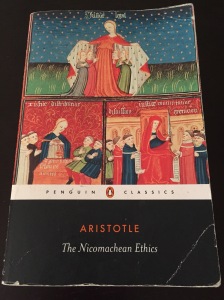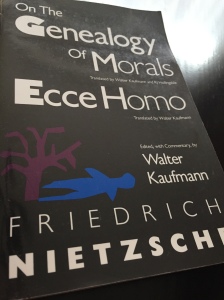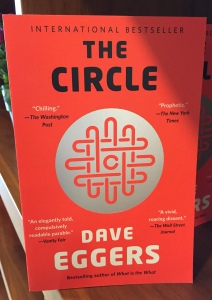The anti-feminist and self-proclaimed marriage guru, Suzanne Venker wrote a column for Fox News regarding the status of marriage. She asserts in the title that marriage is not a relationship of equals: “To Be Happy, We Must Admit Women and Men are not ‘Equal.'”
Nor should it be, according to Venker. Thus, one might gather, marriage ought to be an inherently asymmetrical relation…for the sake of “happy.” Venker miserably attempts to avoid that asymmetrical inference with: “Being equal in worth, or value, is not the same as being identical or interchangeable.”
The problem according to the author? Feminism destroys marriage. She writes: “Today, men and women have no idea who’s supposed to do what.”
Like what, pray tell me. Should I announce at the beginning of my next university lecture: “Ladies, I know you are equal, but you are not equal here. I realize you wanted to become an engineer, a philosopher, a historian; however, this confuses things. Your value is of a different sort. This endeavor will ruin your potential for happiness and marital bliss. University is for men since their role is to…um…do anything other than your role.”
And if a female student quips: “But I’m happy here.” Shall I reply: “Shhh, dear. See a doctor and get a prescription for a tranquilizer. You needn’t fret about a career.”
And if another female student says: “But I want to earn money.” Shall I reply: “Oh, sweet fragile being, your role is not to earn money. Ladies marry money.”
Then once they exit, I too must collect my things and say: “I’ve misappropriated my talent by earning a PhD and daring to stand before you fine male students with knowledge to dispense. I thought I was happy but apparently I would be happier if I acted natural, and I’ll research how to be natural right away. So, I will go now. I’m not sure if anyone else is available to teach you at the moment, but that can’t be my concern. Bye!”
Let me be blunt. This shit (excuse me) thinking needs to stop. It is not tradition. It is not a “natural” condition.
The notion that woman is not man’s equal is the underscoring reason perpetuating abuse, violence, gendercide, the attempt on Malala Yousafzai’s life, “mansplaining,” and the non-violent yet serious issue of less pay for women, to name a few.
Venker enthusiasts might chant: But that’s not what is meant here! Women should be cared for and put on a pedestal!
And, I ask, what happens when they don’t do as they are told?
To claim that marriage is not among equals is to also claim that women are less than men. There is no circumventing that connection. Venker tried as much by stating that women need to appreciate their “role,” but that simply fails to diffuse the essence of the claim. I suspect the topic of same-sex marriage renders her completely perplexed.
She hearkens back to the mythical time when men were in charge and the dynamics of marriage offered more for women. Women were the winners in that scenario, right? After all they could focus on pleasing their husband by keeping house and cooking instead of the pesky task of earning money or developing talent.
Unless you consider the massive uptick in pharmaceuticals for the “happy” housewives in the 50s.* Or the alcoholism. Or the assumption that women did not work. Are minority women included in this dreamy 1950s picture?
To buoy her position, she paints a dismal picture of the current culture treating women as equals by referencing the Costa Concordia Ship crash (2012) and contrasting it with the fatal sinking of the Titanic. On the Titanic, during a time when women were “rightly” treated as non-equals, the disaster protocol was “women and children first off the ship.” As a result only 103 of the nearly 1,400 passengers who died were women, Venker notes.
However, with the feminist agenda and a pro-equal policy, more chaos ensued on the Costa Concordia.
Aside from being completely absurd, this piece of evidence lacks a strong (or even a minor) causal connection. When the Titanic was sinking there were only about a dozen people privy to that information. In fact, few survivors reported having felt any sort of impact with the iceberg. By direct order, the ship commenced with evacuating slowly and calmly to prevent panic. Because people were not entirely aware their life faced a serious danger, they boarded the life boats without haste, leaving some nearly empty. Surely the “unsinkable” ship couldn’t sink!
In contrast, the Costa Concordia’s passengers were overwrought with panic. “The ship hit rocks, creating a huge gash in the hull and forcing the evacuation” (The Guardian). Of course, that would force a behavior resulting in a by-pass of conventional pleasantries. (Note the devastating Boston Cocoanut Grove fire of 1942.)
Venker’s evidence regarding problems with equality rest on a rather murky foundation and an awkward scare tactic. For example, other causal factors are more likely to explain the difference in evacuation. Because feminism exists, it does not follow that women died on the Costa Concordia as a result. Venker’s ability to thread a causal connection is about as strong as me announcing: “Every time I wash my car it rains the next day.” While that has unfortunately been true, I couldn’t conclude that the act of washing my car caused the rain.
Venker clings to the notion of gender roles and disputes the concept of social construction. Her evidence? “We know little girls love their dolls and boys just want to kick that ball.”
This does not prove a “natural tendency.” Who provides these toys? What happens when a boy plays with a doll? When a girl kicks a ball? Are they encouraged? In fact, her example lends itself to the exact position she wishes to strike down, namely the possibility of learned behavior. What one “likes” or gravitates towards can be attributed to environment and condition. Don’t believe me? Pull out your seventh grade school picture, take a look at your stylish outfit and do, and reminisce on what was “cool” at the time (or rad or groovy). Still think environment has nothing to do with what you are drawn to?
For the record, let’s review what is “natural,” shall we?
Thinking, creativity, and the desire to play (be it music, sports, or logic puzzles). These are aspects of the human condition, and to dismiss, stifle, or infringe one’s expression of these is wrong.
To tell any human being they are less than another human being based on the body into which they were born is wrong.
To tell any human being they are destined to serve another human being based on the body into which they were born is wrong.
* From ‘Mother’s Little Helper’: The Crisis of Psychoanalysis and the Milton Resolution by Jonathan Metzl. “Emphasis on the Valium craze of the 1970s, however, has caused many scholars to overlook the 1950s as a decade in which key links were forged between ‘mothers’ and psychopharmacological medications….Thanks to psychopharmacology, ‘emotional’ problems could be cured simply by visiting a doctor, obtaining a prescription and taking a pill. Invariably, these problems ranged from a woman’s frigidity, to a bride’s uncertainty, to a wife’s infidelity. The predominance of such conditions suggest how psychopharmaceuticals came of age in a post-war consumer culture intimately concerned with the role of mothers in maintaining individual and communal peace of mind. As a result, the 1950s set precedents connecting women and psychopharmaceuticals that lay the foundation for Mother’s Little Helpers in the decades to come.”








